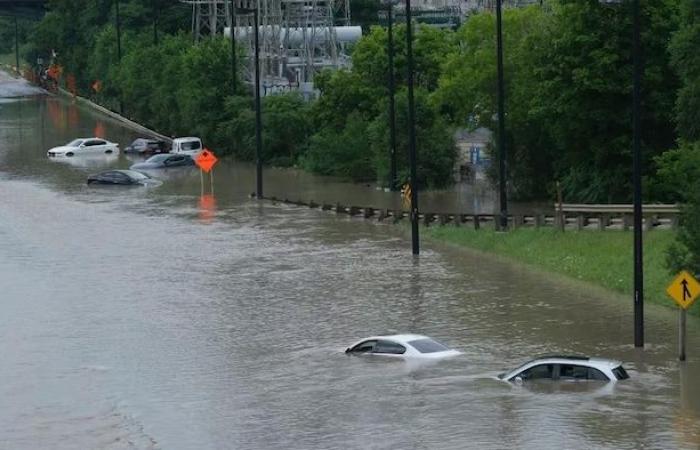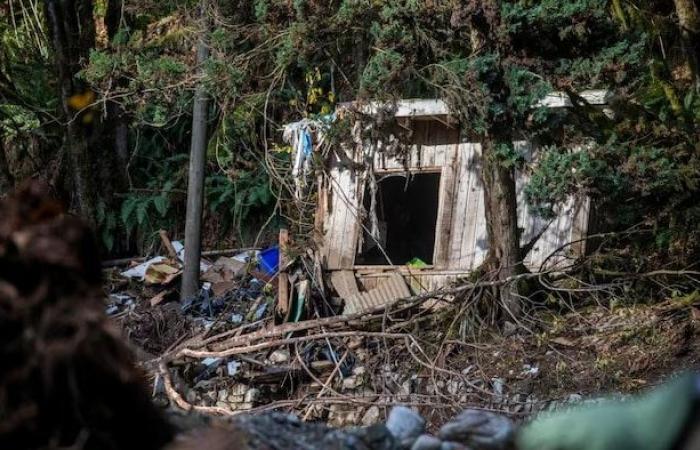2024 was the costliest year on record for insurance payouts in Canada, following a series of devastating weather disasters. Insurers warn that home insurance prices are likely to increase significantly this year as a result.
The Insurance Bureau of Canada indicates that insurers paid out $8.55 billion in 2024, more than $2 billion more than in 2016, a year that had been the most expensive to date in terms of insurance. compensation.
The spending comes after hundreds of homes were destroyed by a wildfire in Jasper, Alta., and parts of the Greater Toronto Area were submerged by flooding in what was a year of disasters climate in Canada.
Last year, British Columbia experienced its fourth worst wildfire season in terms of total area burned, as well as a series of storms late in the year that caused several deaths from flooding and to landslides.
Open in full screen mode
The Don River Parkway in the Greater Toronto Area was completely flooded after a major storm last summer. (Archive photo)
Photo : - / Patrick Morrell
Insurers warn that increasing weather disasters will likely lead to higher insurance rates.
Jason Clarknational director of climate change advocacy at the Insurance Bureau of Canada, explains that climate change is fueling these severe weather events
. He adds that the total losses from these disasters far exceed the insured losses.
He urges governments to invest in community preparedness and resilience.
It is clear that we are not prepared… We must invest in the preparedness and resilience of our communities to ensure our homes and communities are better protected.
An increase in prices
Daniel Ivanfrom the online insurance comparison site rates.ca
says that it is difficult to estimate the increase in home insurance premiums in 2025, but that with $8 billion in weather-related losses last year, expected to rise significantly
.
He recommends shopping around or using a broker to find the best rates.
The increase in prices and the multiplication of exclusions in insurance policies
are also risks to watch out for, says Tony Gioventu, executive director of the British Columbia Condominium Owners Association.
And this, particularly in this province where climatic risks such as forest fires, floods and landslides are significant, he explains.
Open in full screen mode
The rubble of the home of Sonya McIntyre, who died following a mudslide that swept away her home after torrential rains, is pictured on Quarry Road in Coquitlam. (Archive photo)
Photo : - / Ben Nelms
Tony Gioventu advises homeowners to carefully review their insurance policies and fill gaps in coverage, especially when other insurance such as condominium insurance does not cover certain risks.
Climate change cited as a factor
Ryan Nessdirector of adaptation research at the Climate Institute of Canada, warns that climate-related damages could reach hundreds of billions per year by the end of the century and be unsustainable
if trends continue.
We can reduce these costs dramatically by reducing emissions, which limits the extent of climate change and climate extremes we will experience in the future […] but, also, by investing in strengthening our infrastructure, our communities and our homes to face this new meteorological reality.
The federal government says it has invested $6.6 billion in climate adaptation since 2015, and British Columbia has allocated $467 million to local governments and First Nations for emergency management since 2017.
With information from Liam Britten







